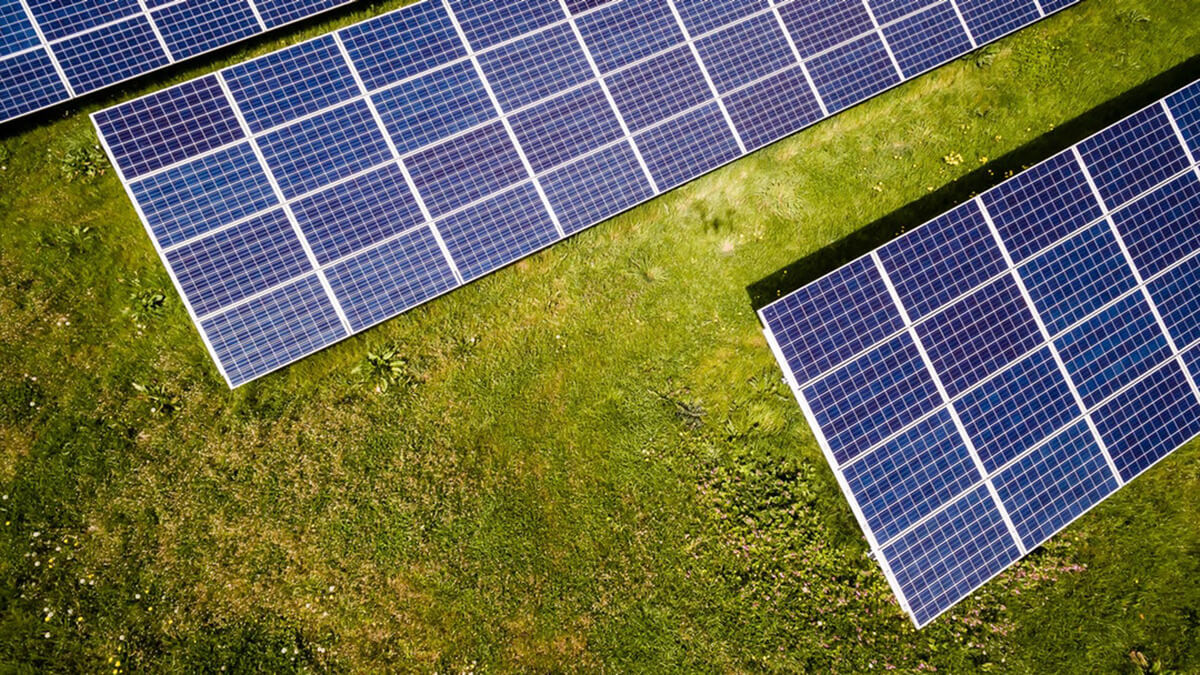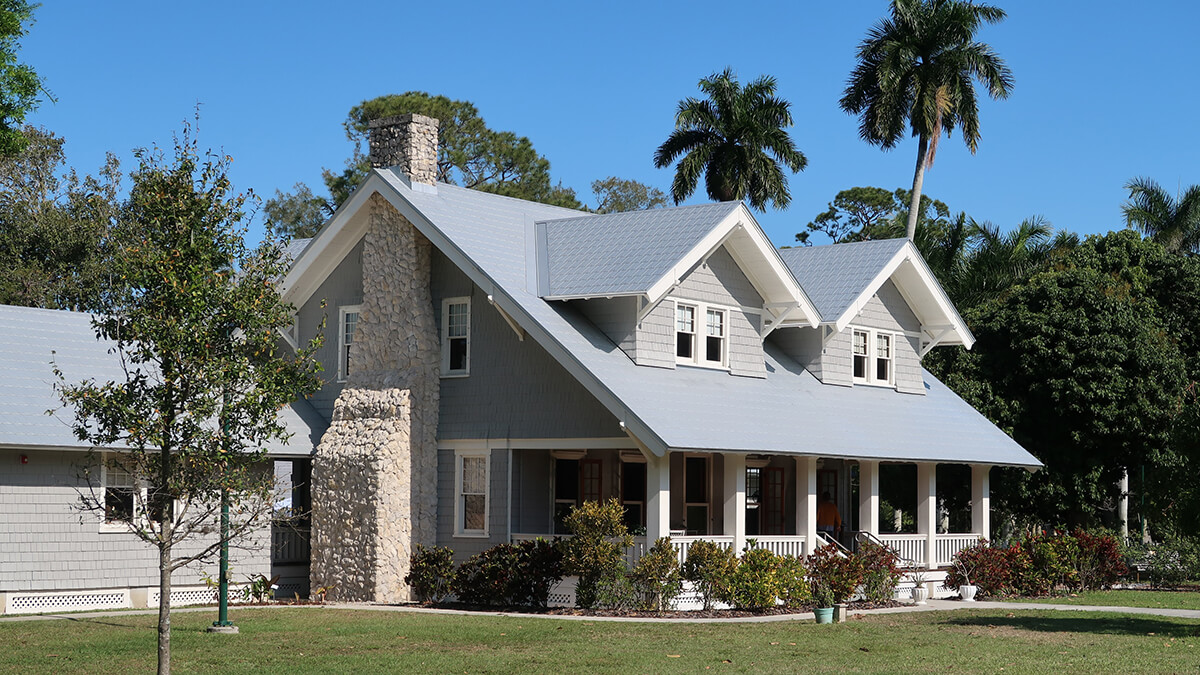Solar panels are an incredible technology that enables us to harness the power of the sun in novel ways. They take radiation energy from the sun and effectively convert it into electrical power that we can use for many household appliances and devices. Solar panels enable homeowners to increase the capabilities of their homes, save money on electricity bills, and become more self-reliant.
There are different types of solar panels, including thermal and photovoltaic solar panels, and while the former generate heat for water or air, the latter are used to generate electricity. So how do different solar panels work? How do photovoltaic solar panels generate electricity? Do solar panels increase home value? Let’s jump in.
Discover your home’s worth online for free in minutes!
Thermal Panels
Thermal solar panels work by transferring heat from sunlight into fluids that can be used to transfer the heat to either water or air. Thermal panels enable homeowners and residents to harness the heating power of the sun in order to heat their air or water. However, generally, when people are speaking generally about solar panels, these may not be the first kind to come to mind. Rather, that phrase is often used colloquially, to refer specifically to photovoltaic solar panels or PV panels.
Photovoltaic Panels
Photovoltaic panels are the type of solar panel people are often referring to when they simply say solar panel. Photovoltaic, or PV, solar panels, can generate electrical charges from sunlight. The way they work is by harnessing the power of the photovoltaic effect. Photovoltaic panels are made up of individual “cells” (as in units, not as in the biological kind of cell) that contain layers of semiconductor materials that are given positive and negative charges. When sunlight hits the cells, electrons in the semiconductor materials are knocked loose by ions in the sunlight and a charge is created. Multiple solar cells are typically tied together in parallel circuits, creating full solar panels.
Solar Panels and Home Value: The Connection
When it comes to the value of a home and how it is impacted by the presence of solar panels, there is a lot to consider, but the news is generally good. Do solar panels increase home values? Is there really a noticeable increase in home value with solar panels? If so, where does the real estate value of solar panels lie? Studies have shown that solar panels can effectively increase the value of a home. However, there are multiple factors that can influence how much if at all they do increase the value of a home.
Solar panels are often better than no solar panels. Still, some of the factors that can influence the the solar panel impact on property prices include the location of the home, how much power the solar panels are able to generate, the quality of the solar panels, and the age of the solar panels.
Interested in your home’s current market value? Receive a free online home value estimate!
When it comes to adding value to homes, it has been well-demonstrated that solar panels are able to do so. A 2008 study is frequently cited, that showed an estimated 20$ increase in the value of a home for every $1 saved annually on utility bills due to solar panels. This study was published in The Appraisal Journal, a peer-reviewed publication by the Appraisal Institute. More recently, however, Berkeley Lab took an extensive look at the nature of photovoltaic solar panel premiums on U.S. homes. They found even more evidence that solar panels can increase the value of a home, finding that, on average, the value of a home with solar panels increased by $4 per watt added by the solar panels. So, clearly, solar panels can increase the value of a home.
But, what about those other factors we mentioned? Location, the age of the system, and the size of the system? Berkeley Lab’s study can help us better understand these factors as well. For one, their study showed that larger systems could also drive larger premiums. Researchers found that there was a tendency for solar systems of any size to command a premium, which tends to increase as the systems increase in size. They also noted that aging and older PV systems tended to command less of a premium.
Financial Benefits of Solar Panel Installation
So, solar panels can noticeably increase the value of a home in the market. But, what if you’re not putting your home on the market? Moreover, what’s behind the premium that solar panels can drive on home values? The bottom line is that solar panels are desirable for a reason—several, actually.
Many of these are related to how solar panels can increase the value of a home. For one, solar systems can be extremely cost-effective, enabling homeowners or residents to enjoy lower utility bills. Additionally, in some jurisdictions and locales, residents may be able to enjoy certain government-driven incentives. Finally, when all these factors are combined, solar panels can show a tangible ROI in some cases.
In order to determine whether or not one might see a tangible ROI for solar panel installation, there are some simple calculations they can run to get a better idea. While typically, solar panels won’t pay for themselves right away, individuals can calculate the time it will take for systems to offer significant enough returns to cover the costs of installation and maintenance. This calculation is commonly known as the solar payback period, and estimates about what the national average might be range quite a bit, with some as low as 5 years and some as high as 14 years. The way to calculate the solar payback period is fairly simple:
Total cost to install / Annual savings from the system = Solar payback period in years
Still, it’s important to note that there are a number of factors that go into that “annual savings” figure, as well as into the “total cost to install” figure. For example, rebates can lower the total cost to install, and annual tax breaks due to the system may increase the amount you’re able to save annually due to having the system installed.
While the time it may take for a system to pay for itself can be important to understand, it won’t tell you what your actual return on investment might be beyond the point at which you break even on the system.
In order to calculate that, you’ll need to identify various points in time at which you’d like to calculate the ROI of solar panel installation, and you also may need to consider additional factors such as maintenance required after the break-even point. You’ll also need to consider the estimated life of your solar system if you want to calculate your total ROI. You’ll also need to estimate the price of power per kilowatt hour for the duration of your system’s estimated life. A simple form of an ROI formula might be:
( Annual Savings x Estimated Lifespan of System ) – Installation and all other associated costs.
However, with the myriad factors that one must consider in order to derive those figures, it may make sense to use an ROI calculator.
Environmental Impact and Green Home Appeal
Beyond the financial and economic reasons for opting for solar panel installation, there are other great reasons why homeowners might opt to install a solar system or look specifically for homes that feature them. Importantly, environmental considerations drive many individuals’ interests in solar panel installation.
Solar panels can be an important part of reducing one’s overall carbon footprint, enabling homeowners and residents to generate electrical power independently of grids that might rely on fossil fuels for power generation. As such, solar panels can be appealing to buyers who are looking specifically for sustainable or environmentally friendly purchasing options.
This can mean that solar panels aren’t just a great way to improve our environmental aspect; they can also be an important selling point of a home, potentially adding value to the home or making it more appealing to buyers in the market. This approach may make sense given sustainability trends in the real estate market.
For example, a survey conducted by the National Association of Realtors in 2022 which surveyed members on sustainability issues found that nearly half of the members surveyed reported that clients were interested in sustainability and that half surveyed had recently helped a client buy or sell a home with sustainability features.
Challenges and Considerations
Though solar panels can be an excellent investment, and enable homeowners to take steps to reduce their carbon footprint, there are a number of important considerations that must be taken, as well as certain challenges associated with installation, ownership, and maintenance.
One of the most notable challenges can be the upfront cost of solar panels and their installation. In addition to the cost of panels, the cost to have them installed, and the cost of peripheral equipment such as batteries, there may be a number of smaller unexpected costs, such as the cost for mountings, brackets, or fasteners if they aren’t included with solar panels.
Another significant potential challenge can come in the form of maintenance and, in some cases, repair costs. Solar panels require regular maintenance. In addition to needing regular cleaning, panels should be inspected on a regular basis as well. What’s more, should panels be damaged by severe weather, vandalism, or even defect, components may need to be replaced, repaired, or both. As such, there may be some unexpected costs associated with the maintenance and repair of solar panels.
In addition to purchasing solar panels or financing the eventual purchase of solar panels, homeowners may also have the option to lease solar panels. Solar panel leasing is an option that allows homeowners or residents to use solar panels without owning them. Solar panel leasing will typically come with either no or lower upfront costs and may have lower monthly costs than those associated with financing the purchase of solar panels. What’s more, the company leasing the panels will generally be responsible for costs associated with maintenance and repair. Some of the potential disadvantages associated with leasing panels are that the homeowner won’t eventually own the panels, that they may require a lengthy contract, and that leasing may not afford homeowners certain or full tax benefits associated with owning solar panels.
Appraising Solar-Powered Homes
When it comes to solar panel, home appraisal are one place where they can often be considered a clear positive investment. Solar panels can increase the value of a home and appraisers might consider them a valuable amenity. When it comes to determining how much a solar panel system may increase the value of a home, appraisers might take into consideration a wide range of factors, such as:
- The size and age of a photovoltaic solar panel system,
- The location of the home,
- The amount of power that the system is able to provide,
- The condition of the solar panels and whether or not they’re under warranty.
When it comes to maximizing home value during appraising, there are some simple steps you can take that may help you ensure that you get a fair appraisal. These include:
- Cleaning in and around the home, including the yard,
- Making small repairs around the home,
- Clearly communicating the presence of important amenities such as solar panels,
- Clearly communicating recent repairs that have been made.
Conclusion
The bottom line is that solar panels are often a great investment. They can add value to a home, and they can help homeowners reduce the amount they spend on utilities, as well as serve as an important part of a strategy to reduce one’s carbon footprint.
When it comes to deciding whether or not a solar panel installation is right for you, there’s a lot to consider. It can be helpful to do some cost-benefit analysis and calculate one’s solar payment period, as well as one’s potential ROI when considering whether to install solar panels or how many.
Some of the factors to consider include maintenance costs, the lifespan of a solar panel system, how much electricity costs locally, how much sun you can expect during a year, and how much solar panels might increase the value of your home.
While solar panel installation can come with hefty upfront costs, there are additional options, such as leasing. What’s more, the initial investment costs associated with purchasing solar panels and having them installed may be outweighed, in the long term, by the amount of savings that a solar panel system can provide.
To learn more or discover the possible value of your home, be sure to reach out today! At iBuyer.com, you can quickly get an accurate estimate, receive a quick cash offer, and decide if and when you want to sell.




